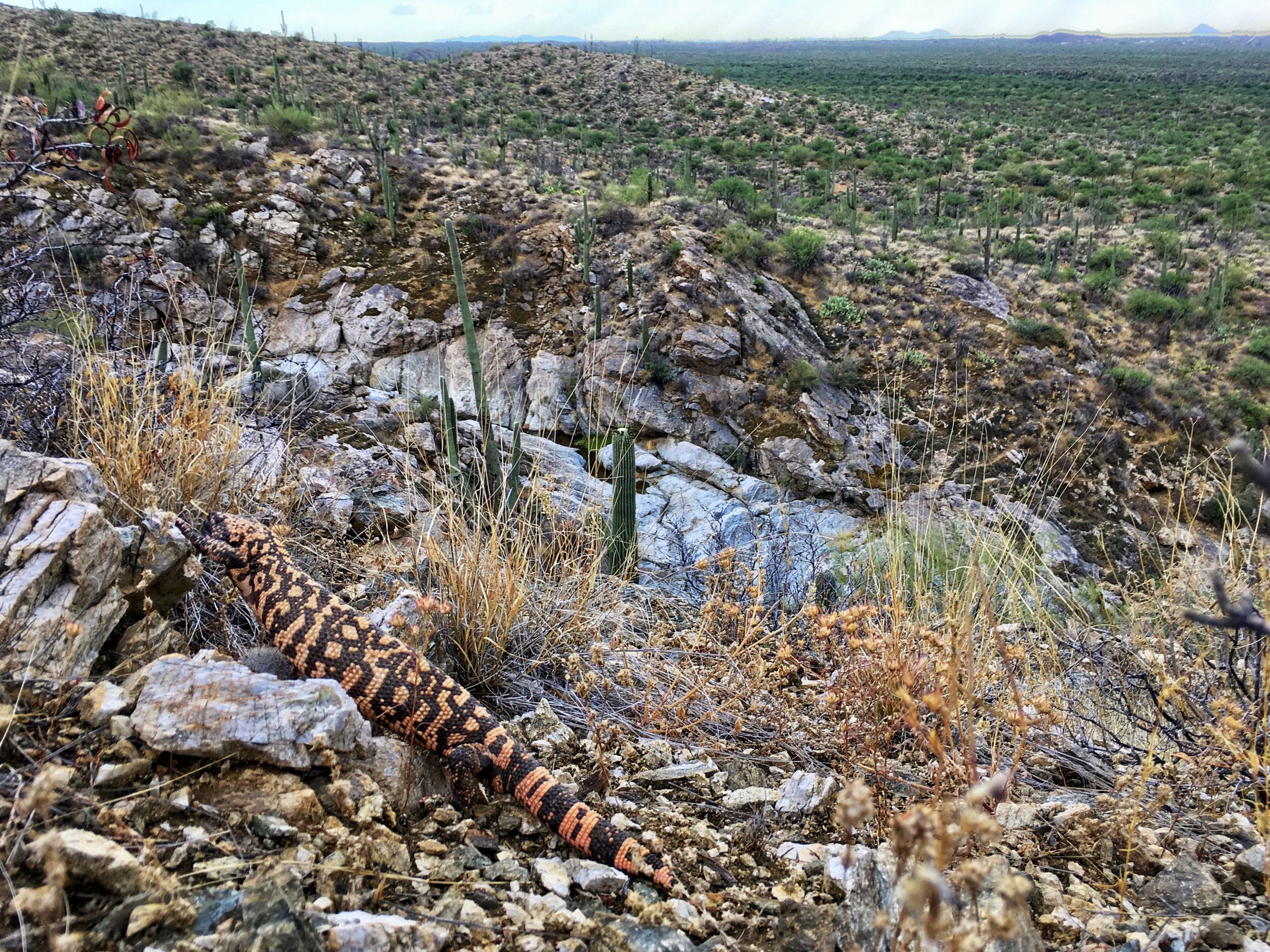Protesters rally at Arizona Capitol to support public lands
The Lumberjack (April 5, 2025) by Darby Walker
Protesters gathered at the Arizona Capitol building on March 27 to hold a “Rally for Public Lands,” showing support for national parks, monuments and federally protected public land being threatened by policy changes.
Rally attendees advocated for various issues, the most prominent of which included a lawsuit in Utah that could open federal land to commercial development and legislators threatening the national monument status of a section of the Grand Canyon.
The crowd of around 300 people was coordinated by multiple nonprofit and activist organizations, including the Arizona Trail Association, the Sierra Club, Chispa Arizona and American Hunters and Anglers.
Matthew Nelson, executive director of the Arizona Trail Association, was one of many community members who helped bring the rally together.
Nelson said the rally was inspired by recently introduced legislation that caused him and his fellow organizers to realize lawmakers do not have their best interests in mind when it comes to protecting public lands.
“The majority of Arizonans identify as people who participate in outdoor recreation,” Nelson said. “We are the majority in the state, so if we can rally as many people as possible, we can remind public officials that public lands are important to us. They should not be privatized. They should not be mined. They should not be logged. They need to be preserved.”
Nelson said one of the most concerning policies around public land began in Utah with an August 2024 lawsuit demanding public land be transferred from federal to state control. If passed, it could open millions of acres of public land to mining, fossil fuel production and logging.
While the lawsuit brought by the state of Utah was rejected by the Supreme Court, it has continued to carry influence. The state of Montana proposed a resolution in March to support the state of Utah should it continue its case.
“We’re really concerned that if that were to happen, we would start to see some of our most precious places disappear,” Nelson said.
Carletta Tilousi of the Havasupai Tribe and president of the Red Rock Foundation gave a speech in front of the Capitol building alongside other activists and members of the community.
Tilousi said the Havasupai Tribe was one of many that advocated for 15 years to get nearly 1 million square acres of the Grand Canyon, named Baaj Nwaavjo I’tah Kukveni, designated as a national monument and federally protected in 2023.
“The public lands that we have, have ancient trails,” Tilousi said to the crowd. “They have ancient waterways. They have burial sites that are so significant to my people and my children and my family. I really appreciate you all standing with us to make that happen.”
The federal protections included a ban on future uranium mining within the monument area. In February, Arizona Senate President Warren Petersen publicly called to have the protections revoked.
The ban does not halt the production of mines already operating in the Baaj Nwaavjo I’tah Kukveni area if they have a valid existing right, meaning their establishment predates the ban. This includes the Pinyon Plain Uranium Mine located less than 10 miles south of the Grand Canyon.
“We are in a time where our public lands are going to be attacked, is what I’m hearing,” Tilousi said. “This is when I really need you guys to be louder and to be smarter about what we do. You need to call your congressional people and let them know, ‘Do not touch our lands.’”
Pinyon Plain’s uranium mining near sacred tribal land has been protested by the Navajo, Havasupai, Hopi and Ute tribes since it began operating in 1986. The Grand Canyon Trust has worked with many of the Indigenous groups involved with Baaj Nwaavjo I’tah Kukveni and has repeatedly joined in condemnation of uranium mining in the Grand Canyon area.
Attendees of the rally also held signs for the Save the Peaks coalition, which has organized against Snowbowl’s use of reclaimed groundwater in Flagstaff to generate snow and keep skiing hills open during the offseason.
As of February 2024, Snowbowl has been permitted to continue its use of reclaimed water to generate artificial snow.
Rebeca Rodriguez, a board member of the Arizona Trail Association and organizer of the rally, said mining and drilling would negatively affect the nearby communities, and she felt it was important to get this message out through the rally.
Rodriguez said that if Baaj Nwaavjo I’tah Kukveni was further developed by mining companies, it would be a massive loss to the hikers visiting the Grand Canyon.
“That would have an impact on the water, the air, the animals and people like myself that love hiking on that passage,” Rodriguez said. “It’s close to the rim of the Grand Canyon, and it’s so, so beautiful, and I would lose access to that.”
As a volunteer, Rodriquez said she understands the importance of public lands and the federal workforce that supports them.
The Trump administration fired around 3,400 Forest Service employees in February across the nation. While the number of employees fired in Arizona has yet to be confirmed, wait times and toll booth operations in the Grand Canyon National Park have both been negatively affected.
“I volunteer a lot doing trail maintenance, everything from cutting back plants to helping with trail erosion,” Rodriguez said. “I know the value of the federal agencies that manage those lands. In order to do the trail volunteer work, you need to get permits, you need to develop work plans, and if those connections aren’t there, trails aren’t going to be safe.”
The Arizona Trail Association holds regular trail maintenance events and the next volunteer opportunity starts Thursday, April 10. The Grand Canyon Trust has put forward a petition to protect the Grand Canyon from mining development, which can be found on its website.
Click here to read the article online.












